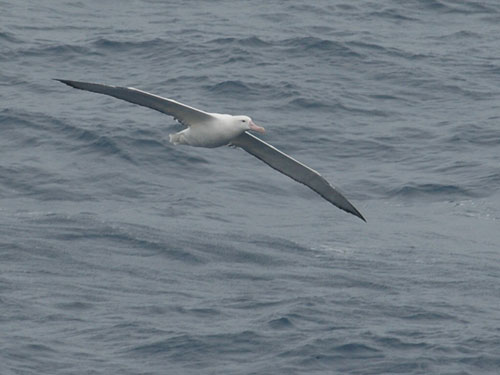BirdLife International launched a booklet entitled Marine Important Bird Areas - Priority for the Conservation of Biodiversity this last weekend on ‘Oceans Day' at the Tenth Meeting of the Conference of the of the Convention on Biological Diversity , taking place in Nagoya, Japan over 18-29 October (click here).
The booklet, compiled by Ben Lascelles and colleagues, outlines how the Important Bird Area (IBA) concept may be extended to the marine environment.
To quote from the booklet: "Over 130 species of seabird are listed as threatened on the IUCN Red List for birds. 10% of all Critically Endangered birds are seabirds, despite seabirds representing just 3% of the world's bird species. 28% of seabirds are listed as threatened on the IUCN Red List (compared to 13% for all extant birds), with albatrosses, penguins, gadfly petrels and shearwaters among the most threatened families. The southern oceans and the Pacific are particularly important areas for threatened seabirds, where their ranges span multiple Exclusive Economic Zones (EEZs) as well as many Areas Beyond National Jurisdiction (ABNJs)."
To view information about IBAs visit www.birdlife.org/datazone/sites. The marine IBA toolkit can be downloaded at www.birdlife.org/eu/pdfs/Marine_IBA_Toolkit_2010.pdf.

Oceans Day at Nagoya aimed to draw high-level policy attention to the need to address the major drivers of ocean and coastal biodiversity loss, take stock of progress (or lack thereof) in the achievement of global biodiversity targets and outline the next steps in the global oceans agenda (click here).
Reference:
BirdLife International 2010. Marine Important Bird Areas - Priority for the Conservation of Biodiversity. Cambridge, UK: BirdLife International.. ISBN 978-0-946888-74-0. http://www.birdlife.org/community/wp-content/uploads/2010/10/marineIBAs.pdf.
John Cooper, AANP Information Officer, 25 October 2010

 English
English  Français
Français  Español
Español